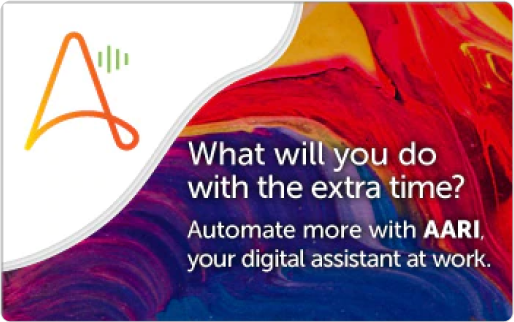Blog
Digital Workers: Changing the Future of Work

The rapidly evolving automation world now includes Digital Workers to free humans to focus on value-added work and increase customer satisfaction.
A Digital Worker has a set of skills that automate parts of a traditionally defined job role. These new virtual employees can help offload repetitive, high-volume work by thinking, acting, and analyzing in ways humans do — allowing us humans to accomplish work that is more stimulating. This is the future of work.
How are Digital Workers different than bots?
Software bots automate specific tasks and workflows. Digital Workers, on the other hand, have skills that correspond to human jobs and responsibilities. Each skill may combine routine tasks, cognitive functions, and analytical abilities.

Take the Digital Oracle Accounts Payable Clerk, for example. This Digital Worker has skills such as invoice processing, payment processing, and record management. An invoice processing skill may include tasks such as invoice extraction (routine task), entity recognition (cognitive function), and reporting (analytical ability).
Delegating these types of tedious responsibilities to Digital Workers can save your business a lot of time initiating and implementing robotic process automation (RPA) projects. Typically, RPA projects require extensive time and resources to identify repetitive tasks, map bots to these tasks and then deploy the bots.
Digital Workers, however, are already mapped to predefined job roles. That means you can easily download and configure Digital Workers to automate parts of a job role, slashing the time and cost of RPA projects by more than half.
Accelerate your digital transformation with Digital Workers
New technology advancements are rapidly changing the world around us. For example, Amazon has seized the retail industry, Uber has disrupted transportation, and Airbnb has become the new accommodation hot spot.
Along those same lines, the adoption of artificial intelligence, robotics, and automation is growing tremendously in all industries and most regions of the world. In fact, many businesses are adopting RPA as a cost-effective solution to automate mundane, repetitive work and provide a more exciting employee experience to human workers.
RPA empowers you to automate rule-based processes that are ideal for structured data. By adding Digital Workers, you get greater depth for both structured and unstructured data, along with cognitive insight for enhancing business intelligence, accelerating digital transformation, and improving employee morale. Additionally, Digital Workers boost customer satisfaction by increasing availability and responsiveness.
Digital Workers make work more human
The workforce of the modern age comprises humans and machines working together, each with their own strengths. While Digital Workers excel at speed, accuracy, scale, and performance, humans bring creativity, ingenuity, collaboration, and empathy in the work they do.
In general, humans are less favorable toward repetitive actions in the workplace — especially millennials and Gen Zers entering the workforce today, who are tech-savvy and don’t want to go to work to become human bots. The changing times mandate taking the robot out of the human to provide a better work experience for human employees.
Your organization can realize true human potential by turbocharging your workforce with Digital Workers. Freeing human workers to focus on innovation, collaboration, and learning will streamline productivity and drive innovation.
Meet the new
Digital Worker.
Share this:
Related Blogs
About Suhasini Gadam
Suhasini Gadam, a strategist, analyst, and thought leader, is product marketing manager of Bot Store. She's driven to solve complex problems with simple solutions.
Subscribe via EmailView All Posts LinkedIn







